Lessons From TV Land: What Makes a Good Show Last?
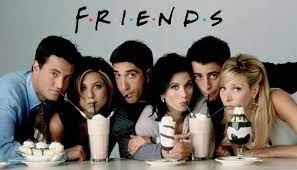
I was having a conversation with a friend last night about a TV series. Which was it? I think it was Godless. I said I had liked the first few episodes but gave up before the season ended.
We were speculating as to why that happens.
My thought was that the answer is simple: It’s difficult to make an hour or 90 minutes of good drama. Making six to 10 episodes (a typical season) of good drama is nearly impossible. The wonder to me is how anyone can make even a single season work well.
In fact, it happens all the time, which is a credit to the enormous talent in Hollywood and the Big Apple. So, it’s not surprising that more often than not episodic series burn themselves out, either by losing steam or attempting to “jump the shark.”
What I want to know is how do some series go on and on without flagging? I’m talking about Friends at 10 years (1994-2004), Big Bang Theory at 13 years (2007-2019), and Curb Your Enthusiasm at 22 years (2000-present)?
Let’s see…
* All three are comedies. Situation comedies.
* They feature strong, compatible ensemble casts.
My theory was that they are about ordinary, flawed people struggling with the mundanities of quotidian life.
How does that make them more timeless or enduring?
I didn’t know. So, I did a bit of research. And what I discovered confused me even more. It turns out that Curb Your Enthusiasm’s 22 years is nothing compared to the longest-running TV shows in history. Here are the top 20 as of May 2021 (some of them still producing new episodes)… none of them (unless you count The Simpsons) sitcoms:
- The Tonight Show – 67 years
- Coronation Street – 61 years (British soap opera)
- General Hospital – 58 years
- Guiding Light – 57 years
- Days of Our Lives – 56 years
- As the World Turns – 54 years
- Sazae-san – 52 years (Japanese children’s series)
- Sesame Street– 52 years
- Emmerdale – 49 years (British soap opera)
- The Price Is Right – 49 years
- The Young and the Restless – 48 years
- Saturday Night Live – 46 years
- One Life to Live – 45 years
- Doctor Who – 42 years (British science fiction series)
- All My Children – 41 years
- Wheel of Fortune – 38 years
- Jeopardy – 37 years
- The Bold and the Beautiful – 34 years
- Mister Rogers’ Neighborhood – 33 years
- The Simpsons – 33 years
Milestones in Television History
Here’s something else I found in my research – a brief compilation of milestones in television history from Seth Berkman, writing for Stacker, made briefer by my editing:
1920s

In 1926, John Logie Baird gave a public demonstration of a television system in London. Two years later, the first television stations launched.
1939
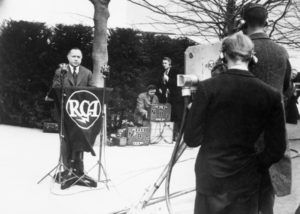
The opening of the 1939 World’s Fair in New York introduced television to a national audience, thanks to RCA and a speech by President Franklin D. Roosevelt. NBC soon began nightly broadcasts.
1940s
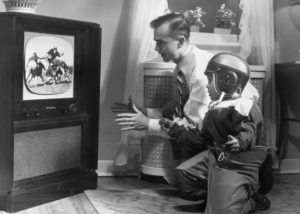
As black-and-white TVs became more common in American households, the finishing touches on what we would come to know as color TV were refined. Pro sports were first broadcast on American stations and ABC was formed.
1950s
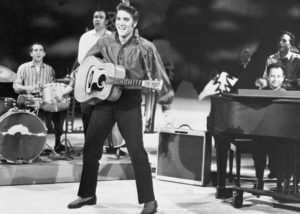
Morning television was revolutionized with the debut of NBC’s Today in 1952. Elvis Presley made his first TV appearances in the middle of the decade, and became proof that television presence could create a worldwide star.
1960s
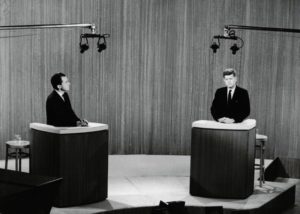
Political discourse and global ambitions were elevated to a new level. The 1960s began with Richard M. Nixon and John F. Kennedy going against each other in a split-screen televised debate. Three years later, breaking news coverage forever changed with Kennedy’s assassination in Dallas.
1970s
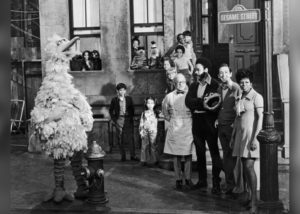
HBO became available in 1972, changing the pay cable format with exclusive movies, groundbreaking original programming, and live sports.
1980s

In 1981, MTV launched and played its first music video, the aptly titled “Video Killed the Radio Star” by the Buggles, and changed the entertainment industry. Combo TVs, featuring a TV and a VCR, gained popularity.
1990s

NBC’s “Must See TV” block of shows created the zenith of sitcom television, spinning out a slew of hits, including Seinfeld, Friends, Frasier, Will and Grace, and Golden Girls.
2000s

Reality TV became all the craze, with shows like Survivor, American Idol, and The Amazing Race. In 2007, Netflix began offering a streaming option for its library of TV shows and movies. Flatscreens begin to all but replace the bigger, cube-shaped, cathode-ray tube TVs.
2010s

Streaming services became even more popular, with HBO, NBC, and even the WWE creating their own monthly subscription services. Smart TVs become more prevalent, allowing viewers to stream music, skim through YouTube, and watch their favorite shows all on one device.
